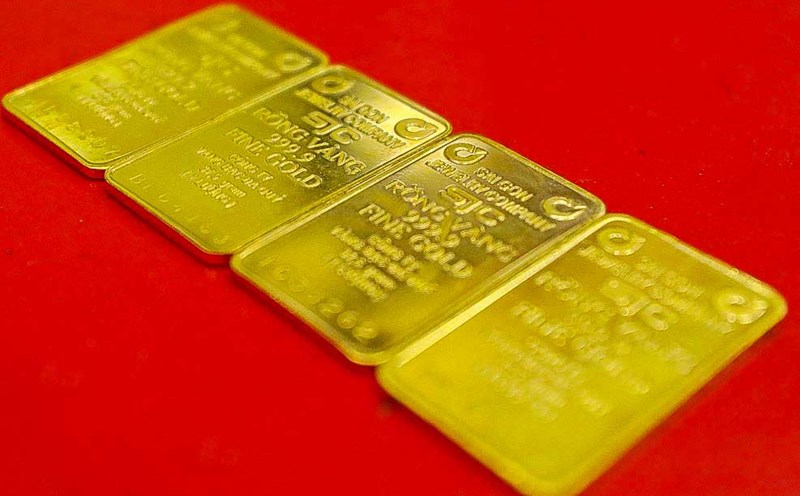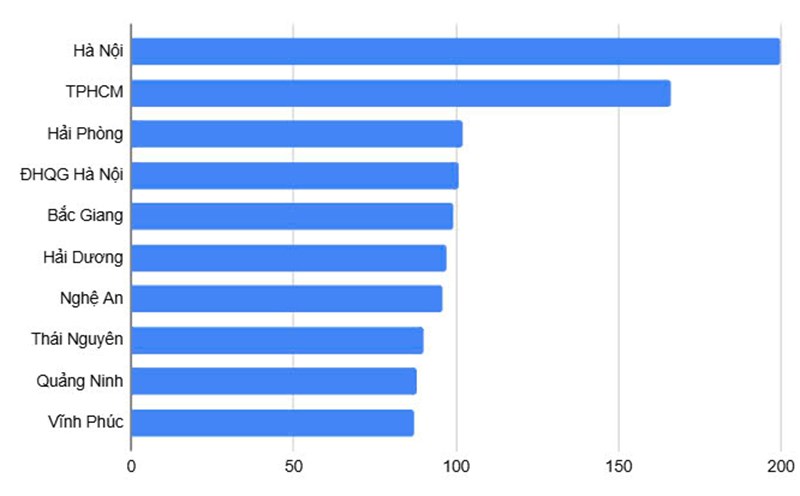According to a report by Dragon Capital Securities Company (VDSC), the State Bank of Vietnam (SBV) sold about 9.4 billion USD in 2024 to stabilize the exchange rate. Foreign exchange reserves after foreign currency sales are currently about 80 billion USD.
According to VDSC, this foreign currency sale activity takes place in two main stages.
The first phase, from April to July 2024, will record sales of about $6.5 billion. The second phase, from September to December 2024, will be less intense, with sales of about $2.8 billion.
VDSC's report also shows that the USD/VND exchange rate in 2024 will fluctuate strongly, especially in the second and fourth quarters, when the pressure on the dong to depreciate increases. The correlation coefficient between the US Dollar Index (DXY) and the USD/VND exchange rate reached 0.67, up from 0.63 in 2023. Compared to the beginning of the year, the central exchange rate increased by 1.9%, reaching 24,320 VND/USD.
The official market exchange rate increased by 4.8% to VND25,430/USD, while the free market exchange rate increased by 4.3% to VND25,840/USD. However, VDSC assessed that this exchange rate fluctuation is still within the control of the State Bank.
In addition to selling foreign currency, the State Bank also intervened in the open market to stabilize liquidity and control exchange rates. The rediscount and refinancing rates were maintained at 3.0%/year and 4.5%/year, respectively.
According to the report, the SBV net withdrew about VND 28 trillion during periods of strong exchange rate increases, such as May-June and October-December 2024, lower than the net injection of VND 66 trillion in 2023. In the interbank market, the average overnight lending rate reached 3.4%/year, about 1.2 percentage points higher than the previous year.
When the overnight interest rate fell below the rediscount rate, the SBV issued bills to push interest rates up again, while reducing pressure on the exchange rate by controlling the USD-VND interest rate differential.











